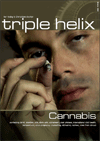The Nuffield Council on Bioethics [1] published its long awaited report Critical care decisions in fetal and neonatal medicine: ethical issues on 16 November 2006.[2,3,4] In the weeks leading up to its release there was considerable media speculation about its contents with major newspapers highlighting what individual bodies had said in their submissions to the Working Party some 18 months earlier. In particular the RCOG's apparent ambiguity about the role of euthanasia for neonates with congenital abnormalities received special attention [5] with commentator Melanie Phillips dubbing it 'The Royal College of Infanticide'. [6] Some journalists also, quite unjustifiably, attempted to portray the Church of England as supporting euthanasia in some circumstances. [7]
The Nuffield Working Party, chaired by Margaret Brazier, Professor of Law at Manchester University, held a consultation in 2005, and received about 100 responses: 53% from individuals and 47% from organisations. In addition they had held ten fact-finding meetings between February 2005 and May 2006. CMF contributed a submission [8] to the consultation and was also represented at a fact-finding meeting to consider faith-based perspectives. When the report finally emerged there was much to commend in it but also some things about which Christian doctors will have significant reservations.
What was good? First the report came out strongly against euthanasia; active steps to end the life of newborn babies should not be allowed, no matter how serious their condition. The professional obligation of doctors is to preserve life where they can. The Council also recognised the reality of the slippery slope. If euthanasia for seriously ill newborns were allowed it would be very difficult to identify an upper age limit beyond which the practice would not be permitted.
Second, the report wisely endorsed current medical practice and law which allows decisions to be made either to withhold or to withdraw treatment in cases where treatment would be futile or cause intolerable suffering for no benefit. Third, the Council called for palliative care to be given to newborns who are not to be treated, so that they can die peacefully and in comfort instead of simply being left to die suffering the symptoms of their illness. In addition it said that the NHS had a duty to train all professionals working in neonatal medicine in palliative care.
Fourth, the Council urged the Government to accept further responsibility for ensuring that disabled children and their families receive equal access to high quality services as advocated in the National Service Framework for Children,Young People and Maternity Services. And, fifth, stressed that individual doctors should not be driven by the resource implications of their decisions, but rather base them on the best interests of the babies concerned. Finally there was a welcome endorsement of second opinions, facilitators and professional mediation to avoid if at all possible the emotional and financial costs of the courts.
What was not so good? First, the report attempted to give firm guidelines about which babies should be resucitated based on gestational age alone: premature babies born before 22 weeks should not receive intensive care, those born between 22 and 23 weeks should not normally receive it, those born between 23 and 24 weeks should be given intensive care if the parents insist, and that babies born between 24 and 25 weeks should normally receive intensive care. It curiously based these recommendations on the EPICure study, [9] a multi-centre UK-based study carried out in 1995 (twelve years ago), whilst at the same time affirming that advances in neonatal care actually meant that the age at which premature babies can survive has been falling by approximately one week every decade over the last 40 years. CMF had pointed out in its own submission that whilst the EPICure study showed survival rates of 11% for babies born at 23 weeks and 26% at 24 weeks, by contrast data from 1996-2000 in a major recent Minnesota study[10] showed rates of 66% and 81% at 23 and 24 weeks respectively. The Council's approach seemed to be both inflexible and not properly evidence-based.We would have preferred the Council to recommend that every premature baby be treated on its own merits after an assessment by a senior paediatrician of condition, weight and estimated gestational age at birth rather than the guidelines becoming hard-and-fast rules to be applied irrespective of the circumstances of each case. Second, there was a hint that decisions not to give intensive care might be based on a subjective assessment of a baby's quality of life, as opposed to its chance of survival.We must be careful to make the distinction between treatments not worth giving (part of good medical practice), and patients not worth treating (opening the door to eugenics). Third, for a report on the decisions about treatment of premature babies there was surprisingly little space given to a consideration of the causes of prematurity. In particular the considerable evidence-base linking increased risk of prematurity with past abortion was simply ignored and dismissed. It was therefore not surprising that the report also ducked the obvious questions raised by the recent high profile debates about upper limits for abortion. If we are to strive to preserve premature babies in the neonatal unit, then why do we tolerate their destruction in the womb at the same gestational age?
These debates will intensify as neonatal care continues to improve and Christian doctors will have a major continuing role to play, both in advocating the best care for these most vulnerable of human beings, and in insisting that all recommendations are properly evidence-based.
































